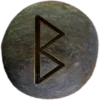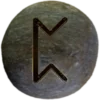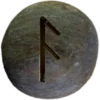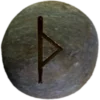Last Updated on February 19, 2025
Table of Contents


Frigg (pronounced “FRIG”), also spelled Frigga, is the queen of the Æsir and wife of Odin. As the goddess of marriage, motherhood, and domesticity, she holds great power over the home and family life. Frigg is also associated with wisdom and foresight, known for her ability to see the future. Although she possesses this knowledge, she rarely reveals it, maintaining a silent wisdom that makes her both mysterious and revered.
As the mother of Baldur, the beloved god of light, she is deeply connected to the themes of grief and loss. Her desperate efforts to protect Baldur from harm stand as one of her most poignant stories. She exacts promises from all beings and objects in the world to never harm him, but her trust in the mistletoe plant, which she overlooked, ultimately leads to Baldur’s tragic death. This event reflects the complexity of fate, even in a world ruled by gods.
Frigg’s role extends beyond her family. She is known for weaving the clouds, often associated with weaving the very fabric of fate. Her spinning wheel, which is linked to the motion of the stars and heavens, highlights her connection to both the domestic world and the cosmic order. Despite her reserved demeanor, Frigg’s influence in both personal and universal realms is undeniable. She stands as a protector of the home and a keeper of deep, often sorrowful wisdom.
Elder Futhark Runes Associated with Frigg
The rune Perthro is closely associated with Frigg. It represents mystery, fate, and the unfolding of events beyond one’s control. Perthro’s connection to hidden knowledge and destiny mirrors her role as the goddess who understands the future but does not intervene. This rune also reflects the nature of chance, something that Frigg, despite her wisdom, cannot alter completely. Berkanan, symbolizing motherhood and nurturing, also aligns with her maternal and protective qualities. ![]()
Her Importance in Asatru
In Asatru, Frigg is honored as a goddess who embodies the power of motherhood, wisdom, and home life. She represents the balance between fate and personal responsibility. Those who seek her guidance often ask for protection, especially for their families and children. Her ability to foresee the future and her deep connection to the domestic sphere make her an important figure in modern Asatru practice, where she is honored as a symbol of strength, foresight, and nurturing care.


